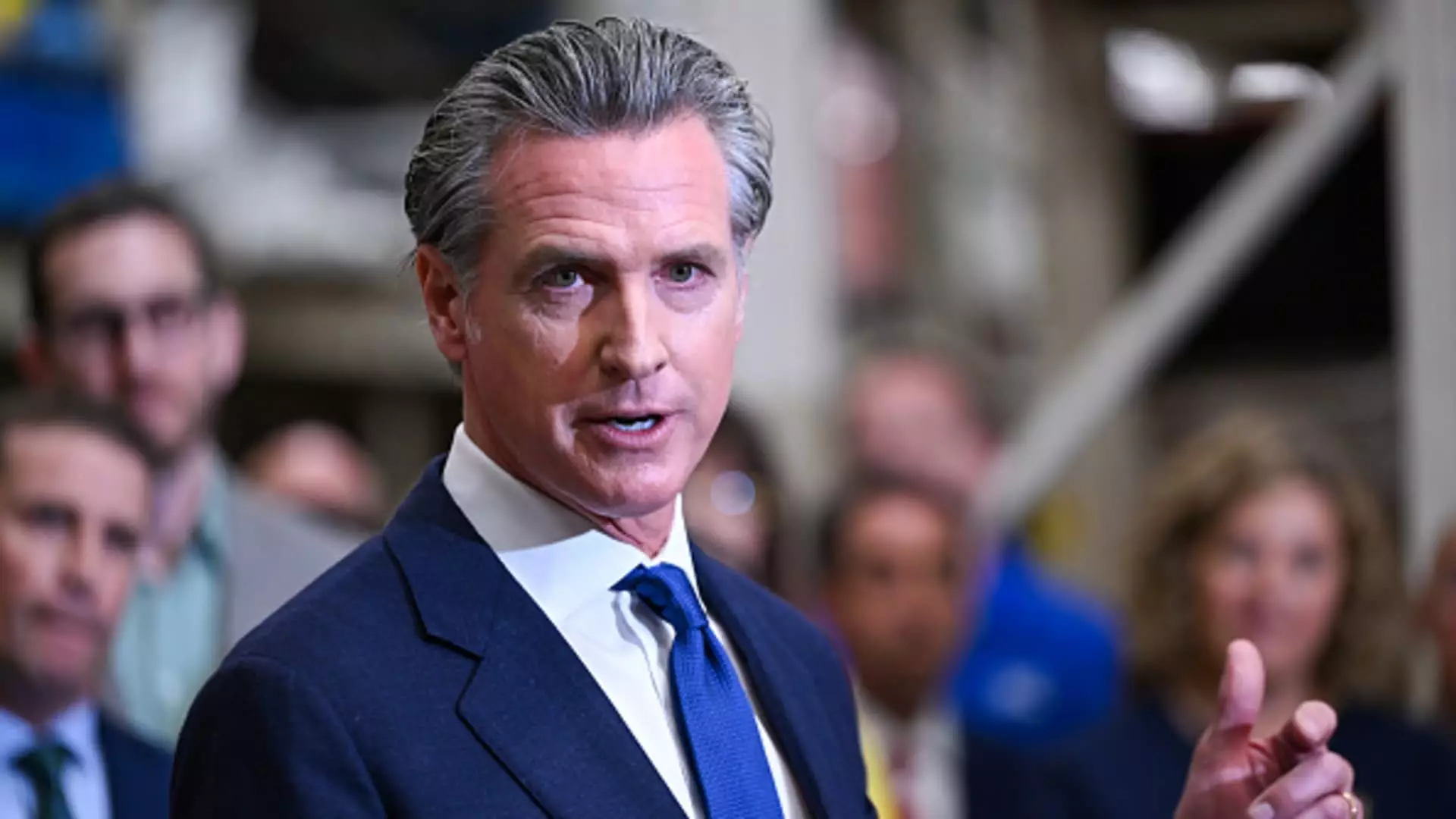California is set to enter a critical political moment as Governor Gavin Newsom convenes a special legislative session aimed at preemptively combating potential federal encroachments anticipated from the forthcoming Trump administration. Scheduled to launch on Monday, this initiative demonstrates California’s proactive approach in defending its values and policies as the political landscape shifts under a Republican president. The underlying tension that characterizes this situation reveals the broader ideological divide within American politics, particularly as it pertains to crucial issues such as reproductive rights and environmental protection.
One of the key components of Governor Newsom’s plan is the establishment of a litigation fund, earmarked at $25 million. This financial resource is intended to bolster the California Department of Justice and other state agencies, equipping them with the necessary tools to mount legal challenges against any federal policies perceived as detrimental to the state. According to officials, the focus will primarily be on safeguarding reproductive rights and environmental regulations, two battlegrounds where California has often found itself at odds with federal directives.
The governor’s office released a statement indicating that the litigation fund is a forward-thinking measure designed to preemptively shield Californian values from anticipated actions by the incoming administration. Given the historical context—wherein California’s judiciary has often taken a combative stance against federal mandates—this fund represents an essential step in maintaining the state’s autonomy and protecting its residents and their rights.
Newsom’s decision to initiate this special session is not without precedent. During Donald Trump’s first term in office, California emerged as a principal adversary, initiating 122 lawsuits against various federal initiatives. The financial ramifications of these legal battles were significant; California’s Department of Justice reportedly allocated $42 million in legal expenses while securing millions in reimbursements. Such metrics illuminate a history of determined legal resistance that may serve as a template for future engagements.
As Newsom and California lawmakers gear up for the special session, it becomes clear that the stakes are high, especially in light of the vulnerabilities that a shift in federal policy could pose to Californian social frameworks. The assertion of a state’s rights doctrine—whether in legislative or judicial forms—will likely take center stage as California prepares to confront any perceived overreach with vigor.
With the incoming administration likely poised to implement regressive policies, California’s focus on safeguarding reproductive rights and environmental standards underscores a commitment to progressive governance. The rhetoric employed by the Trump transition team reflects a tension that is not merely political, but also deeply ideological; they perceive Governor Newsom’s actions as politically motivated and out of step with a considerable portion of the state’s electorate.
Recent polling indicates that economic issues, including high taxes and housing costs, are at the forefront of voters’ concerns. This sentiment will invariably influence how Californian representatives navigate any legislative or court actions. As they confront the dual pressures of federal overreach and internal party dynamics, legislators must tread carefully, balancing ideological advocacy with the pragmatic needs of their constituents.
The dynamics of California’s political landscape have also seen notable shifts. With conservative district attorneys gaining influence in counties like Los Angeles and the recent recalls targeting more progressive incumbents, a narrative of moderation is beginning to emerge. The electoral victories of centrists in key metropolitan areas signal a potential recalibration of the state’s political spectrum. Particularly as economic issues gain prominence, constituents may increasingly prioritize concrete solutions over ideological purity.
Moreover, the passage of measures that increase penalties for certain crimes while halting efforts to raise the minimum wage demonstrates an electorate wrestling with its identity. In a state that has historically championed progressive politics, the reality of economic strain may push voters toward more centrist or conservative policies, complicating Newsom’s efforts to mobilize support for his proactive stance against the incoming administration.
As California stands on the brink of renewed political conflict, Governor Newsom’s legislative session could prove pivotal in how the state navigates challenges posed by federal policies under President Trump. By crafting a robust strategy that includes a legal defense fund, California is preparing not just to assert its values, but also to respond to a changing political environment that may not align with its progressive ideals.
The outcomes of these legislative efforts will resonate beyond California’s borders, potentially influencing national discussions around state rights, federal power, and the balance of governance in an increasingly polarized landscape. Ultimately, this special session serves as a microcosm of the broader struggles inherent in American democracy, shaping the ongoing narrative of conflict, collaboration, and resilience in the face of uncertainty.


Leave a Reply